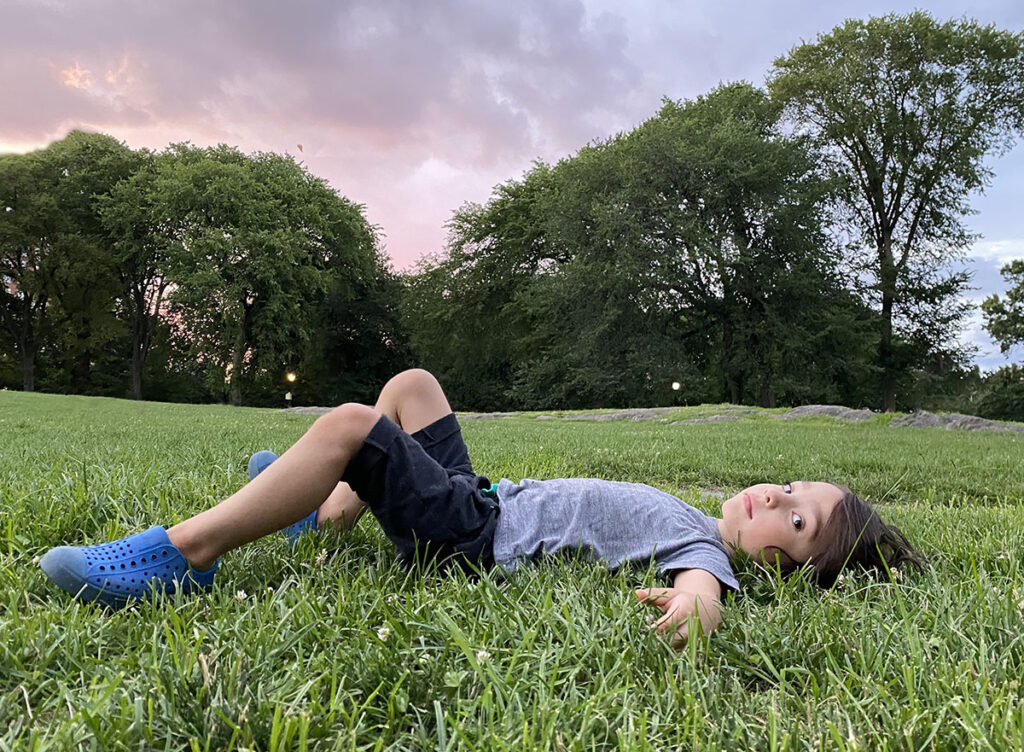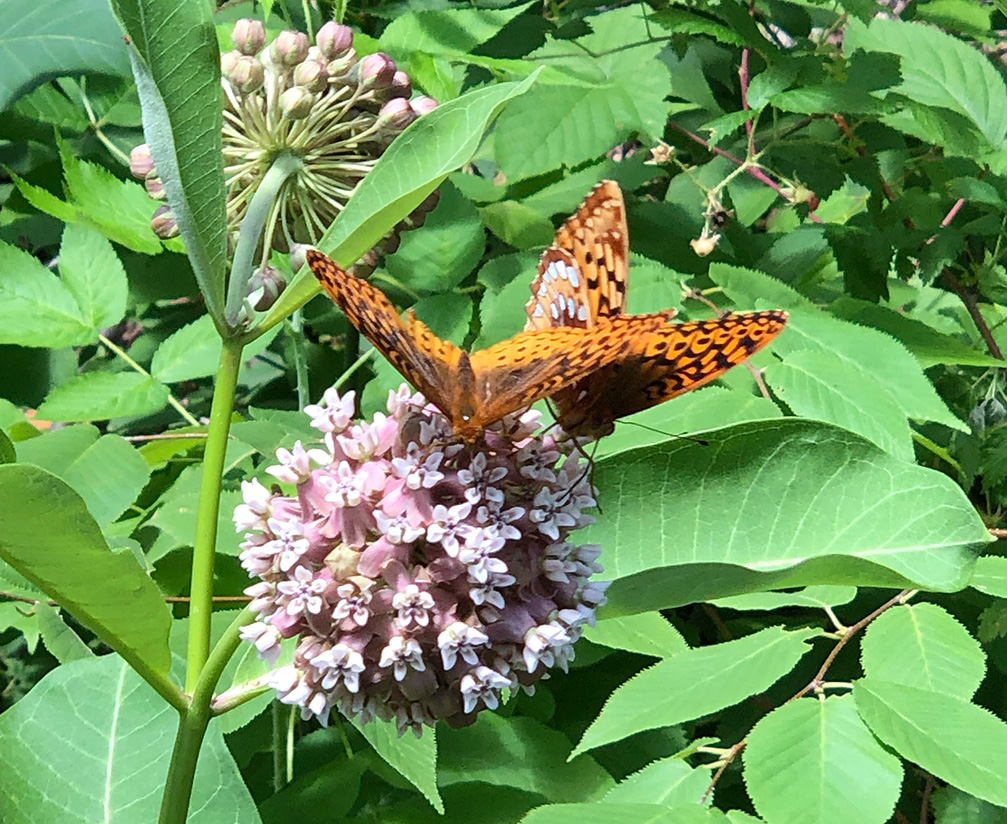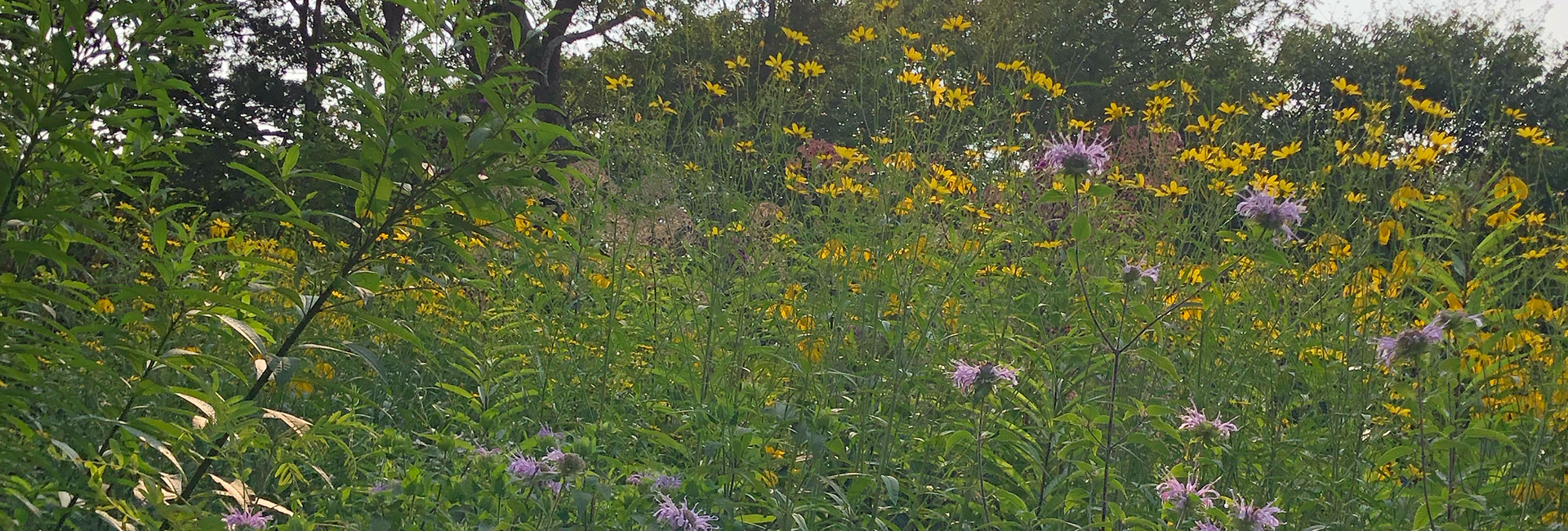Why We Practice Toxic-Free Land Care
When you grow native plants, reduce your lawn, and let nature be your guide, you don’t need to use pesticides and fertilizers. Here are just some of the reasons why going toxic free is the way to be.
Health
Common pesticides (including herbicides, insecticides, rodenticides, and fungicides) have been linked to an array of health issues including cancer, Alzheimer’s, Parkinson’s, blood disorders, endocrine disruption, and birth defects. It is estimated that we use 1 billion pounds of pesticides to control weeds, insects, and other pests in the US each year; 80 million pounds just on our lawns!
- According to a CDC study, 87% of the children and 80% of adults tested have glyphosate (a common herbicide designated by the World Health Organization (WHO) as probably carcinogenic) in their bodies. Glyphosate has been linked to cancer, including non-Hodgkin lymphoma, and Alzheimer’s disease.
- Paraquat has been linked to Parkinson’s disease.
- Research shows that Diquat, a common herbicide, can damage organs and gut bacteria. Widely used in the US, it is banned in the UK, EU, and China.
- The WHO also designates malathion as a probable carcinogen. Its use has been linked to non-Hodgkin lymphoma and prostate cancer.
- Research shows that living within 1 mile of a golf course was associated with 126% increased odds of developing Parkinson’s Disease compared with individuals living more than 6 miles away from a golf course. Golf courses are often heavily treated with pesticides. In the US, pesticide application to golf courses can be up to 15 times higher compared with countries in Europe.
Learn more about the effects of pesticides here.
Pets & Pesticides
Read here about the harms to pets when we use pesticides.
Biodiversity
Pesticides kill indiscriminately—and that includes the butterflies and other pollinators we all love. These chemicals also damage our vital ecosystem. Learn more here.
- Since 1970, North America has lost three billion birds—and “common backyard birds have suffered the greatest losses,” according to the Cornell Lab of Ornithology.
- The U.S. has lost 22% of our butterflies in the last 20 years.
- Forty percent of the world’s insects are in decline—mainly due to pesticide use, though urbanization and climate change are also factors, according to the study.
- Study Finds Pesticide Residue Widespread on Urban Butterfly Plants.
- From biodiversity to nature deficiency in human health and disease
Read more about the harms of pesticides including a chart of the most common ones here.
Natural Systems
Pesticides and synthetic fertilizers also destroy the soil biome (organisms in soil like bacteria and fungi) and create a cycle of dependency, requiring more fertilizers, more pesticides, which means more money for the homeowner.
- A recent study indicates that pesticides harm organisms that are critically important to soil health, and have detrimental effects on carbon sequestration to fight climate change and biodiversity.
Waterways
Synthetic fertilizers and pesticides leech into our waterways.
- In the Peconic Estuary, for example, a quarter of land-based nitrogen in the water comes from fertilizers for agriculture, lawns, and golf courses, according to the Peconic Estuary Partnership. Excess nutrients cause toxic algal blooms, low oxygen in waterways, degraded aquatic habitats, and water pollution.
- A 2020 study of groundwater that feeds public drinking water supply finds pesticides in 41% of supply wells (and a handful of freshwater springs), according to Beyond Pesticides.
The Good News!
When you practice ecological land care, you don’t need pesticides or fertilizers. Discover the joys, beauty, and ease of ecological land care here!




